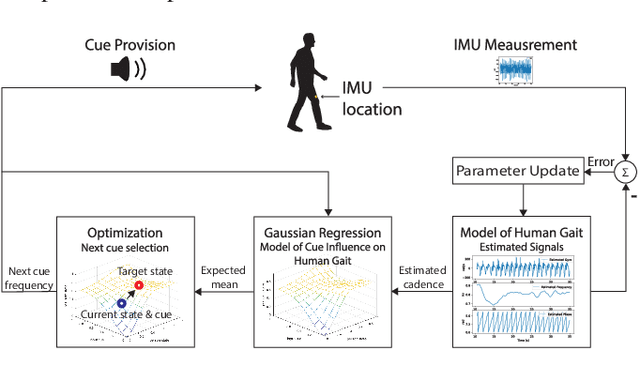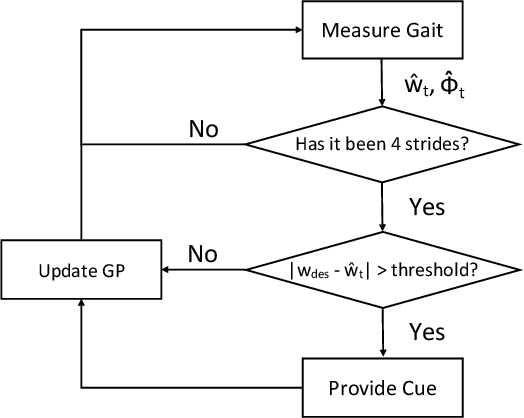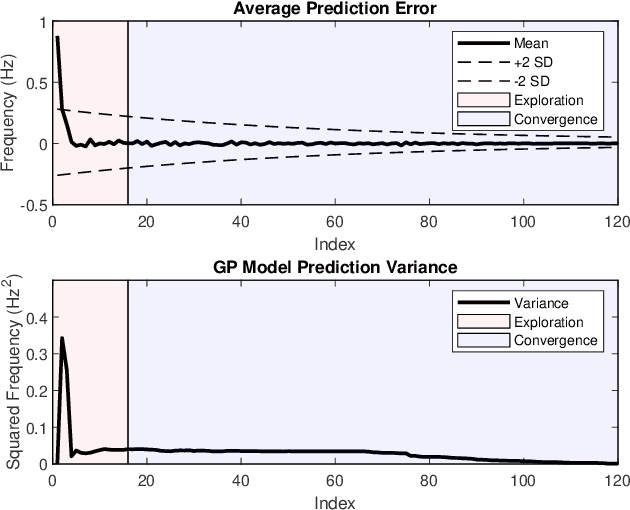Human-in-the-loop Cueing Strategy for Gait Rehabilitation
Paper and Code
Nov 27, 2020



External feedback in the form of visual, auditory and tactile cues has been used to assist patients to overcome mobility challenges. However, these cues can become less effective over time. There is limited research on adapting cues to account for inter and intra-personal variations in cue responsiveness. We propose a cue-provision framework that consists of a gait performance monitoring algorithm and an adaptive cueing strategy to improve gait performance. The proposed approach learns a model of the person's response to cues using Gaussian Process regression. The model is then used within an on-line optimization algorithm to generate cues to improve gait performance. We conduct a study with healthy participants to evaluate the ability of the adaptive cueing strategy to influence human gait, and compare its effectiveness to two other cueing approaches: the standard fixed cue approach and a proportional cue approach. The results show that adaptive cueing is more effective in changing the person's gait state once the response model is learned compared to the other methods.
 Add to Chrome
Add to Chrome Add to Firefox
Add to Firefox Add to Edge
Add to Edge